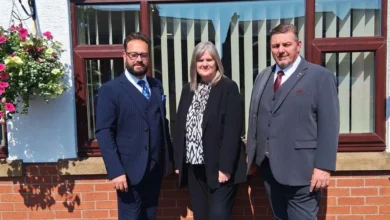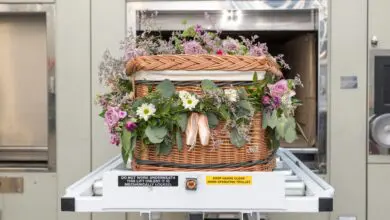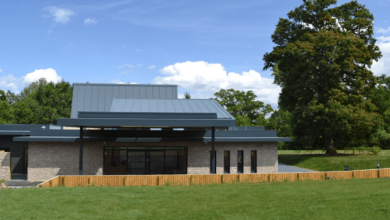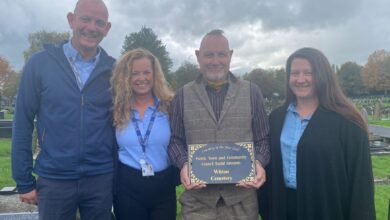Child Funeral Charity Seminar highlights the importance of choice
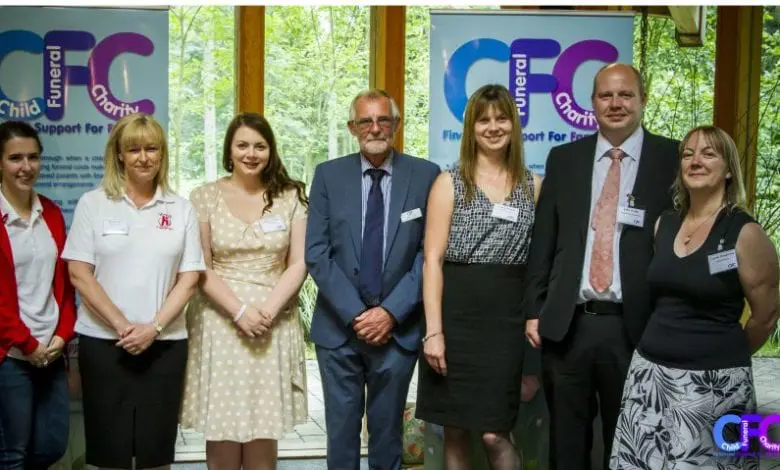
Register to get 1 free article
Reveal the article below by registering for our email newsletter.
Want unlimited access? View Plans
Already have an account? Sign in
The annual Child Funeral Charity Seminar, held at Greenacres Chiltern in July, attracted a wide range of speakers and delegates.
The event highlighted the different funeral choices available to parents who have lost a baby or child. It covered the difficult topics of infant cremations and disposal of foetal remains, to how families deal with grief, the day was full of educational talks and information.
Funeral directors, hospital representatives, bereavement specialists, GPs and many other professionals who work with bereaved families, attended the event. It was sponsored by Greenacres Chiltern and Central England Co-operative Funeralcare.
Roger Gale, chief executive of the charity, opened proceedings with the news that since its launch in 2014, the charity had supported the funeral wishes of 175 families and given advice and guidance to countless others.
“Our goal is to make it easier for many more families to access funds and to help those professionals who wish to make a referral,” he said. “We have been truly touched by the stories we have heard and there is no doubt that this charity is playing an important role in helping families at the most difficult of times.
“I am delighted to see so many people supporting the seminar and spreading the word that parents do have choices.”
Stressing the need for referrals to be made before funeral products have been ordered, he said the charity has recently updated its literature to make applications easier. For full details, go to www.childfuneralcharity.org.uk and in the ‘Apply for help’ page click ‘CFC Application Form’.
The Institute of Cemetery and Crematorium Management
Tim Morris from the Institute of Cemetery and Crematorium Management, talked about infant cremations, highlighting the fact that the 1985 policy on the “sensitive disposal of foetal remains” deems that any baby born before 24 weeks gestation, be treated as clinical waste.
If parents choose not to dispose of their baby this way, he said it is the responsibility of the crematorium to provide them with a non-statutory form, but warned that in addition to the issue of paperwork potentially being lost, there has been lack of clarity between the definition of ashes and cremated remains.
This, he said, makes it difficult for parents to not only understand what happened to their baby retrospectively, but also leading to many parents not receiving any remains at all.
Special Care Foetal Remains
John and Jemma Walsh spoke about their business Special Care Foetal Remains. As part of the patented cremation process, for the first time, their business now offers the cremation of miscarried or aborted babies from the first trimester through to 24 weeks gestation, with a guarantee that ashes will be retained and each cremation will be recorded.
Such funeral options were previously unavailable, leading at least one delegate to implore funeral directors to visit the website www.specialcarecremations.co.uk and ensure they understand that parents do now have a choice. Based in Sheffield, the cremation service is available nationwide.
Additional Speakers
Throughout the afternoon, the remaining speakers reiterated the same message about choices,with Leighanne Hedges from Little Things Angel Clothes (www.littlethingsangelclothes.co.uk), saying: “It is choice, not chance that brings control for parents.”
Karen Taylor from sponsor Central England Co-operative Funeralcare echoed this message and spoke with authority about the organisation’s new Rainbow Service. Providing free funerals for under-16s, it gives families the freedom to choose the various elements of the funeral themselves, rather than simply use a pre-determined package.
Peter Taylor, manager of fellow sponsor Greenacres Chiltern, talked about his organisation’s vision to create an environment where families could celebrate everything from funerals to naming ceremonies to weddings.
Anne Barber, from Civil Ceremonies, spoke about the funeral choices available and explained how the Child Funeral Charity can help families, while emphasising the need to contact them as early as possible in the planning process.
She told the audience that one of the biggest problems facing the charity is the disparity in fees charged by crematoriums and cemeteries for children’s funerals.
Anne also talked about the growing trend for families wishing to hold “celebration of life” funerals and how many now give mourners a token, such as seeds or bookmarks, to take away. Symbolic actions such bubbles, candles, a balloon release and rainbow holograms are also increasingly popular.
Grief Recovery and Special Memories
Carole Henderson from Grief Recovery, who spoke about dealing with grief after a baby or child dies. She highlighted what the Child and Baby Funeral Choice Seminar had been about – that choice and ownership give peace of heart to parents.
Also on show were memory boxes for siblings, created by Sarah Hext, the final speaker of the day, who has set up a new organisation www.asiblingswish.com.
Sarah talked about losing her son Harvey and how she founded the Harvey Hext Trust to create memory boxes for the siblings of children that pass away. The boxes can be an important part of therapy to encourage children to share emotions and talk about their bereavement.
Each box is delivered direct to the family home – along with a Memory Bear – a very special bear with a pouch in his back to store precious items.
She made a plea to help raise funds for The Children’s Hospice Southwest, which is keen to supply the memory boxes to families, at a cost of around £12,000 a year. Sarah is currently working hard to raise £5000 to register the Trust as a charity and continue its good work.


